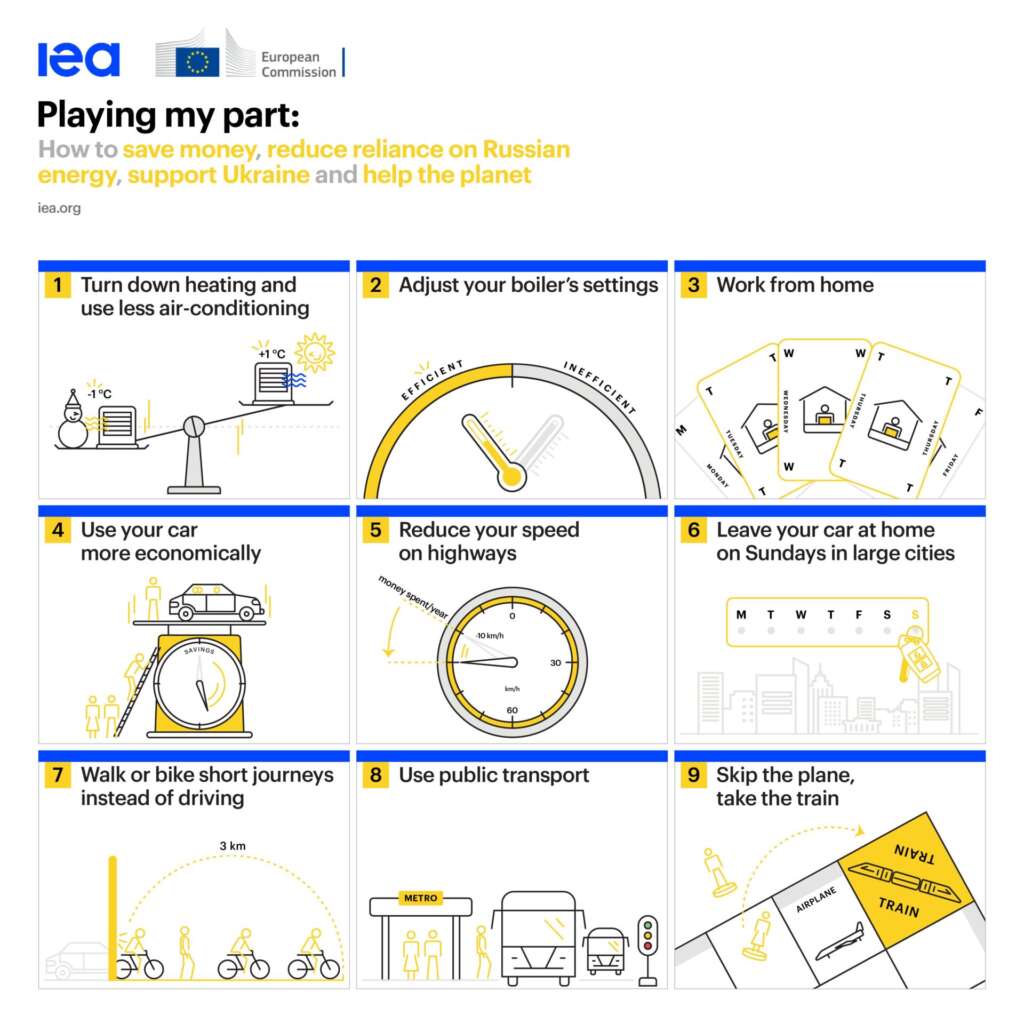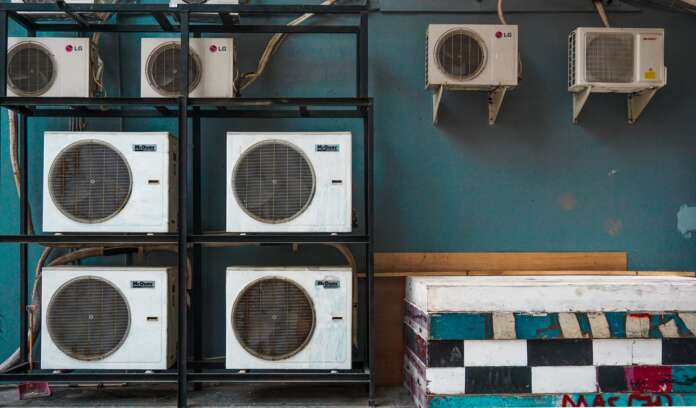The International Energy Agency and the European Commission outlined a range of simple steps that people can take to reduce their energy use and save money – and that would save enough oil to fill 120 supertankers and enough natural gas to heat almost 20 million homes if adopted by all EU citizens.
The actions in the plan draw on the IEA’s recent 10-Point Plan to Reduce the European Union’s Reliance on Russian Natural Gas and 10-Point Plan to Cut Oil Use.
By following all recommendations in the plan, the typical EU household could save, on average, close to 500 euros a year, though the amounts would vary depending on the household’s size, location and access to public transport for example. If all EU citizens were to follow the recommendations at home and in their workplace, it would save 220 million barrels of oil a year and around 17 billion cubic metres of natural gas.
“Faced with the horrendous scenes of human suffering that we’ve seen following Russia’s invasion of Ukraine, people in Europe want to take action,” said IEA Executive Director Dr Birol. “Using less energy is a concrete way to help the Ukrainian people – and to help ourselves. This guide has easy-to-follow steps that with little or no discomfort on our part can reduce the flow of money to Russia’s military and help put us on a path to a cleaner and more sustainable planet.”
“Energy efficiency has the potential to be the most important policy initiative for reducing our dependence on Russian imports and responding to the current energy market challenges, both through short term energy savings, and long term energy efficiency measures,” said Juul Jørgensen, the European Commission Director-General for Energy. “Energy efficiency is an area where everyone can make a difference. This also has the potential to provide considerable savings to individual consumers at this time of high wholesale energy prices.”

The recommended steps involve turning down heating and using less air conditioning, working from home when possible to avoid commuting and carpooling or travelling by public transport when available. Employers have a role to play to encourage teleworking and train journeys instead of short-haul flights. Governments can play a role by providing financial incentives by reducing fares for trains, buses and micro-mobility and by supporting the installation of solar panels, the improvement of home insulation and the switch to other fuels for heating.
According to the plan’s findings, turning down the thermostat by just 1 °C would save around 7 per cent of the energy used for heating, while setting an air conditioner 1 °C warmer could reduce the amount of electricity used by up to 10 per cent. With an average one-way car commute in the EU of 15 kilometres, working at home three days a week could reduce household fuel bills by around 35 euros a month, even after taking increased energy use at home into account. And as the average car in the EU clocks up about 13,000 kilometres a year, reducing cruising speed on motorways by 10 kilometres an hour could cut fuel bills by an average of around 60 euros a year.




